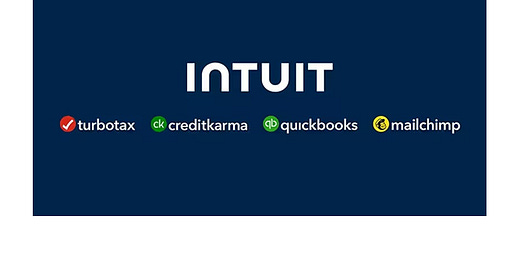Highlights
Intuit has risen 25% since our May update, and has a 36x P/E
Double-digit growth continues in FY23 results and FY24 outlook
Q4 revenues grew 12.3%, driven by the Small Business segment
At $519.05, we see 21% upside (7.7% p.a.) by July 2026
We reiterate our Buy rating because Intuit is a unique asset
Introduction
Intuit reported Q4 FY23 (ending July 31) results after markets closed on Thursday (August 24). Shares fell in after-hours trading but rose on Friday, finishing the day up 4.1%.
Intuit shares have now gained 97% (including dividends) since we originally initiated our Buy rating in September 2019, with the share price rising another 25% since we last reiterated our Buy rating in May. However, Intuit’s share price is still more than 25% lower than its peak in November 2021:
Intuit Share Price (Last 5 Years)
Source: Google Finance (26-Aug-23).
Q4 FY23 results showed that Intuit is continuing to grow both revenues and earnings at double-digits, but valuation is again becoming a con…




